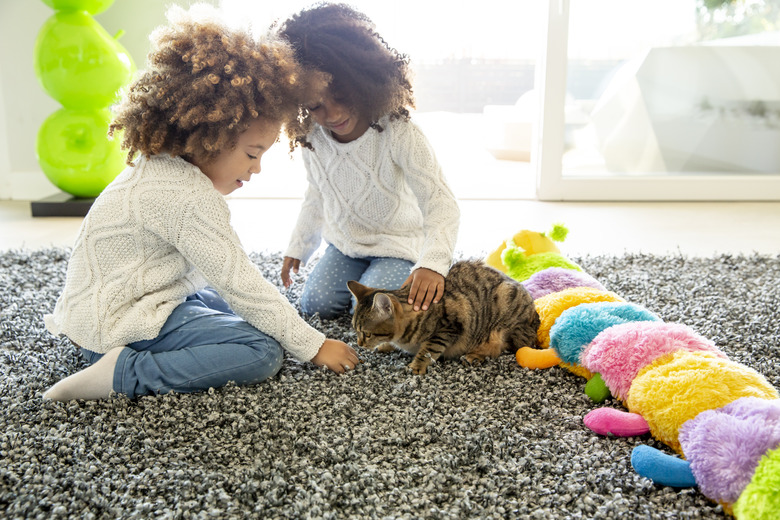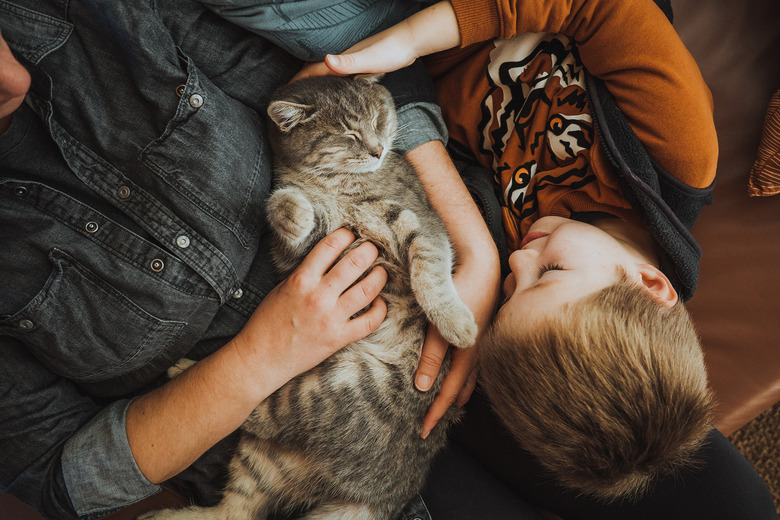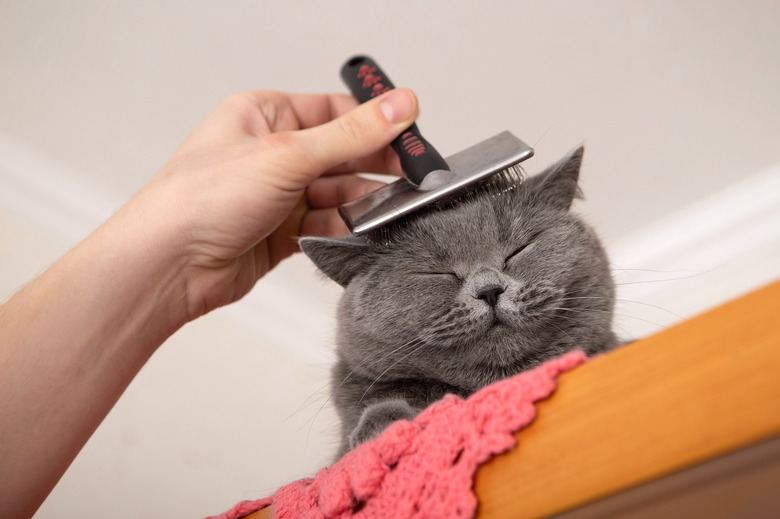Selecting The Right Cat For Your Home Or Family
If you are wanting to add a cat to your family, it's important to find the right cat. Each cat is going to have a unique personality, temperament, health, and behavior. Before bringing a cat home think about what your ideal cat will be like. Seek out a cat with a personality that matches your own. When getting a new cat consider what your home is like, how you enjoy spending time with cats, and what kind of health or behavioral challenges you can manage.
Cat personality types
Cat personality types
All cats are good cats, but not all cats are the right fit for every home or family. Some people love to actively play with their cats, and other people prefer a quiet cat happy to curl up with them on the couch. When looking for a new cat, consider how a cat connects with you when you meet, and anything you can learn from the rescue, breeder, or animal shelter about a prospective cat's temperament and personality. Keep in mind kittens tend to be more playful than adult cats, but some cats are naturally quieter and reserved while others are more playful and mischievous.
Different cat breeds and personalities
Different cat breeds and personalities
When most people think of breeds, dogs are what come to mind, but there are also different breeds of cats! These cats not only look different from one another but can have very different temperaments. The Cat Fanciers Association (CFA) is a great resource for learning more about the needs and temperaments of different breeds of cats. There are currently 45 different breeds of cats recognized by CFA. To learn more about different breeds of cats consider visiting a cat show in your area. Cat shows are a great opportunity to learn more about different breeds of cats and meet breeders and owners involved with those breeds. They can also connect you with purebred cat rescues in your area in case you're interested in adopting an adult cat of a certain breed.
Choosing the right cat for your family dynamics
Choosing the right cat for your family dynamics
Before bringing a cat home, consider the family members in your home, and what your home dynamic is generally like. A very fearful and shy cat might struggle in a loud and busy home, or a home with small children. If you have a busy home with frequent guests you may want to consider a bolder, more social, and outgoing cat. If you have other cats, or a dog you'll ideally want to get an outgoing kitten, or an adult cat that has been shown to be comfortable around other animals in the past.
This will help help your new cat and your existing pets live together more comfortably and ease introductions for all of your pets. Similarly, if you have children, or plan to have children it's a good idea to seek out an outgoing and social cat or kitten. A bold and outgoing kitten will be less likely to be stressed by loud children. Still, be sure to always supervise cats and small children together, and teach kids how to interact with cats safely and appropriately.
Cat grooming requirements
Cat grooming requirements
All cats require regular grooming. Grooming is an important way to keep your cat's fur in good condition. Regular brushing also helps to reduce shedding and allows you the opportunity to inspect your cat's fur and skin for any injuries or sores. This can allow you to catch skin conditions early and seek veterinary care right away.
Although all cats need regular grooming, some cats will need more grooming than others. Before adopting a long-haired cat make sure that you are prepared for an increase in regular grooming. Some long-haired cats like Persians should be brushed daily. In addition, long-haired cats may need professional grooming to keep their coat healthy and in good condition.
Cat health considerations
Cat health considerations
If you are interested in adopting a cat it's always appropriate to ask the rescue or cat's previous owners for access to any veterinary records, they have including proof of vaccinations. If you're bringing home a new cat or kitten it's a good idea to have your prospective new cat seen by a veteran for a full examination. A comprehensive veterinary visit will help you to determine if your prospective new cat or kitten has any persistent medical conditions you should be aware of.
One consideration many prospective cat owners are especially concerned about is Feline Immunodeficiency Virus or FIV. This virus is a common condition that impacts a cat's immune system. FIV positive cats can spread the condition to others through bites, and rarely, mother cats can spread the condition to their babies. However, it has been shown that FIV positive cats don't spread FIV through grooming other cats or sharing water bowls. Deciding to adopt an FIV positive cat is something to be thoughtful about especially if you have other cats in the home who are FIV negative, or plan to adopt other cats.
Cat behavioral issues
Cat behavioral issues
When exploring adopting an adult cat it's important to inquire with the rescue, shelter, and/or foster family about what the cat's behavior has been like. Be realistic with yourself and the rescue about what kind of behavioral challenges you are up for handling in your home. Keep in mind behavior challenges can appear or be exacerbated in times of stress so some cats are going to display different behaviors in a shelter environment.
Adding a cat to your home and family means being prepared and committed to using positive reinforcement training methods to work with cats through challenging behaviors. That said, when you are considering adopting an older cat, be sure to ask the rescue, foster family, or shelter about what kind of behavioral issues prospective cats you are considering might have. Be realistic with yourself about what you are told about a cat you are considering adopting and if you'll be able to work gently using positive reinforcement methods to support that cat.
In summary
In summary
When considering bringing a new cat into your family it's important to not just find a cat but to locate the right cat. Take time to make sure prospective cats you are looking at will be a good match for your family. Before committing to adopt a cat ask questions about the cat's temperament as well as health, and behavior histories.
This information in addition to meeting and interacting with potential cats will help you to determine which cat will be the right fit for your home and family. Taking the time to find a cat whose personality is aligned with you and your home will help the new cat adjust to your home and family and support you and your new cat bonding.



